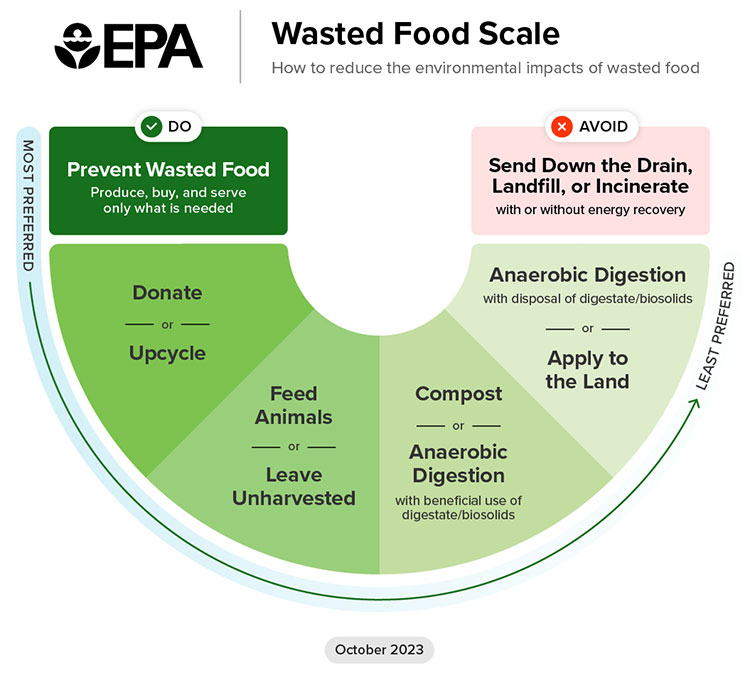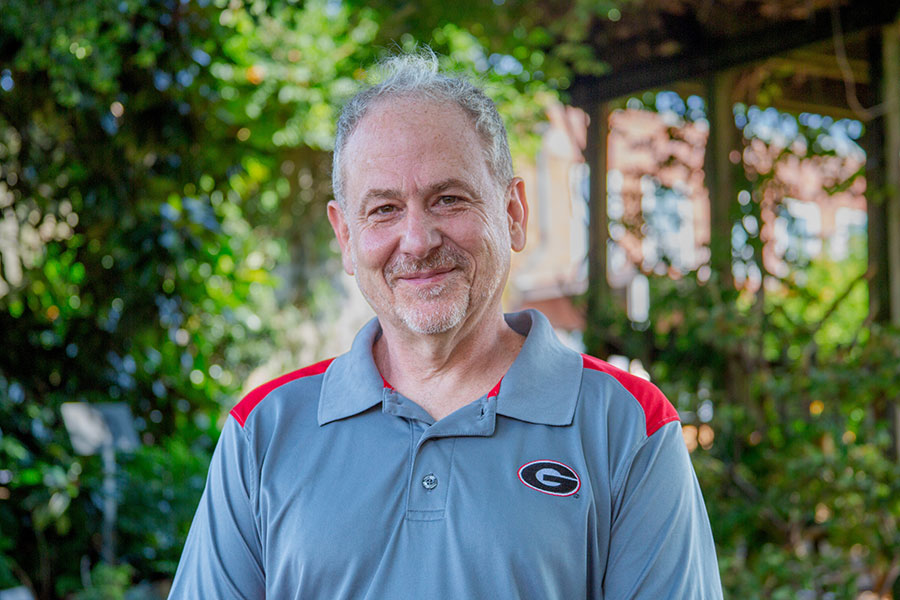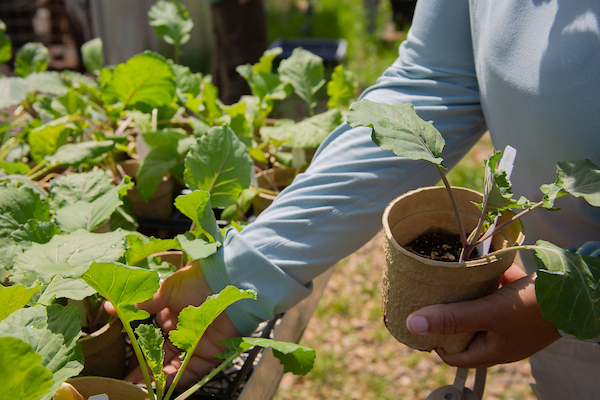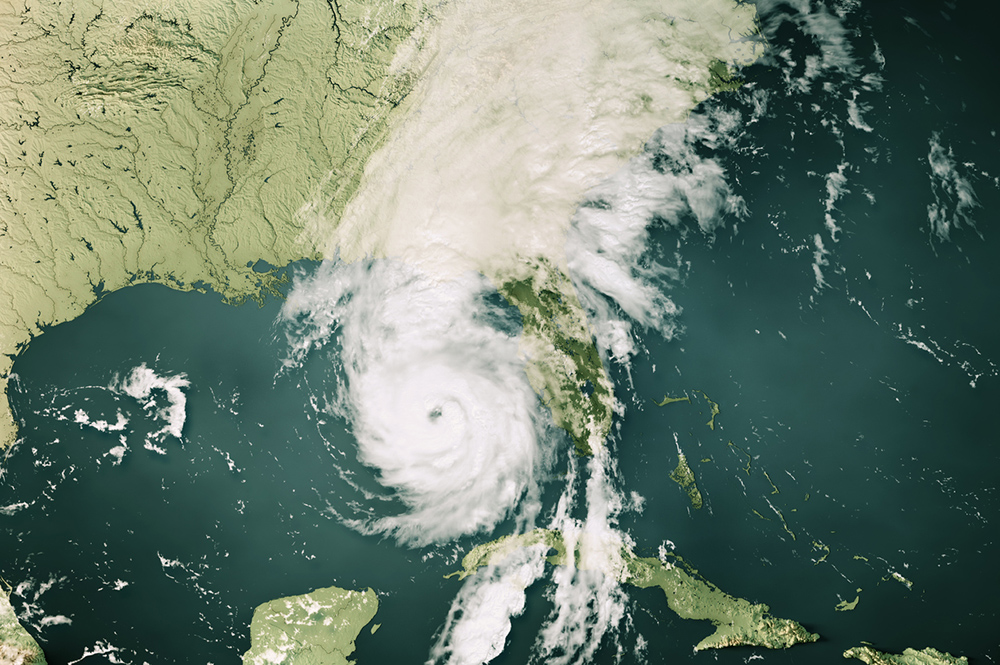
A new national grant program administered by the Southern Sustainable Agriculture Research and Education (SARE) program will pump more than $10.2 million into research to address food loss and waste in the region.
Supported by the U.S. Department of Agriculture’s National Institute of Food and Agriculture, the SARE Community Foods Project Food Loss and Waste Training and Technical Assistance Grants Program is seeking grant proposals from applicants working in the public sector on food loss and waste prevention and mitigation throughout the U.S.
Transforming food systems
Eligible organizations include tribal organizations, nongovernmental organizations; community organizations; gleaning and food recovery organizations; public food program service providers; and academic institutions. Organizations that address food insecurity in rural, tribal and underserved communities are encouraged.
“We are focused on sustainable agriculture, but SARE has not had a program focused on food loss and waste exclusively until now,” said Lisa Johnson, who joined SARE as national food loss and waste program manager in April. “We are looking for organizations that are reducing food loss and waste, diverting safe, edible food for human consumption with a preference for supporting historically underserved communities.”
Using the U.S. Environmental Protection Agency’s Wasted Food Scale, the program seeks best practices to achieve the preferred outcomes for food waste prevention all along the supply chain, Johnson said.
Addressing a global challenge
According to the USDA, more than one-third of all available food in the U.S. goes uneaten through loss or waste. The agency defines food loss as “the edible amount of food, postharvest, that is available for human consumption but is not consumed for any reason.”
According to the EPA, food waste is the single most common material landfilled and incinerated in the U.S., comprising 24% and 22% of landfilled and combusted municipal solid waste, respectively. Recognizing the impacts of food loss and food waste on food security and the environment, the EPA, USDA, and Food and Drug Administration are working toward reducing food loss and food waste by 50% by 2030.
This means supporting activities and partnerships that span the spectrum of the food system – from stakeholders and businesses to schools and consumers – to create linkages within supply chains, decreasing both food waste and climate risk.
“The first goal is to prevent food loss or waste at every level. If prevention is not possible, then the priority becomes reducing food waste through donation for human consumption, or upcycling by creating new products from previous waste streams,” said Johnson. “We are aiming to create linkages throughout the supply chain to create opportunities for safe, edible food to go somewhere it will be utilized, instead of the landfill.”

Grant opportunities
Among the goals of the program are to increase the self-reliance of communities in providing for their own food needs; to promote comprehensive responses to local food access, farm and nutrition issues; and to identify strategies for reducing food loss and waste from harvest through commercial and household use.
USDA has funded farmer-driven grants and grassroots education programs resulting in climate-smart solutions for farms and ranches in every state and island protectorate since 1988. The Southern SARE program, based at the University of Georgia, will serve as host institution and grant facilitator for the program. Other collaborators include Northeast SARE; North Central SARE; Western SARE; SARE National Reporting, Coordination and Communications Office (NRCCO); and Community Food Program Training and Technical Assistance Center (Third Sector New England).
“There is a huge appetite for grants focused in this area, as it is sometimes a struggle to find grants for food recovery efforts,” said Johnson. “Food recovery is happening in every part of the supply chain, from the farm level to the distribution chain. However, we don’t have a good handle on how much food these organizations are removing from the waste stream.”
Blueprint for change
Grant awardees will be required to gather data and report on their outcomes.
“Each grantee organization needs to provide educational materials on how they are achieving success. Those will be shared so other organizations doing this work can have blueprints or guides to show them how to reduce food loss and waste and serve communities. The idea is to support these organizations in their work and multiply that impact through creating resources that can be shared,” Johnson said. “I am hopeful that we can end up with a great toolkit for the entire supply chain on how to reduce food loss and waste, leveraging one problem to help solve another.” Food waste has been called “the world’s dumbest problem,” because so much surplus exists concurrently with so much need.
Each grant will cover a three-year project period. Awards are expected to average about $500,000 with a $1 million per-project limit.
The grant program offers “a fantastic opportunity for those conducting both research and outreach concerning food waste to develop resources and approaches to assist in tackling this problem. As agricultural scientists, often our focus is on production, but the value in reducing loss and waste can in many ways result in greater resource conservation,” said Tim Coolong, SARE coordinator for UGA and a professor in the Department of Horticulture at the College of Agricultural and Environmental Sciences. “I am happy to see that those working on this issue in Georgia have the opportunity to compete for funding from this program.”
The deadline for proposals is June 28 at 5 p.m. Learn more about sustainable agriculture and Southern SARE at southern.sare.org.






